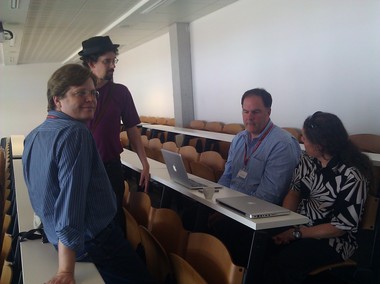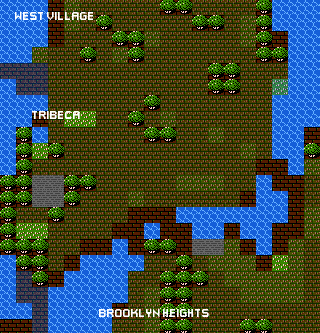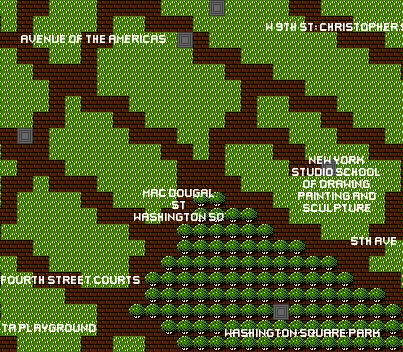First, as of this writing: I’m at the GAMBIT Summer Summit here at MIT, which runs today and is being streamed live. Do check it out if video game research interests you.
A few days ago, I was at the Foundations of Digital Games conference in Bordeaux. On July 1 I presented the first conference paper on Curveship since the system has been released as free software. The paper is “Curveship’s Automatic Narrative Style,” which sums up or at least mentions many of the research results while documenting the practicalities of the system and using the current terminology of the release version.

Noah Wardrip-Fruin, Malcolm Ryan, Michael Young (next year’s FDG local organizer) and Michael Mateas in between sessions at FDG 2011.
At FDG, there was a very intriguing interest in focalization, seen in Jichen Zhu’s presentation of the paper by Jichen Zhu, Santiago Ontañón and Brad Lewter, “Representing Game Characters’ Inner Worlds through Narrative Perspectives” and in the poster “Toward a Computational Model of Focalization” by Byung-Chull Bae, Yun-Gyung Cheong, and R. Michael Young. (Zhu’s work continues aspects of her dissertation project, of which I was a supervisor, so I was particularly interested to see how her work has been progressing.) Curveship has the ability to change focalization and to narrate (textually) from the perspective of different characters, based on their knowledge and perceptions; this is one of several ways in which it can vary the narrating. I’ll be interested to see how others continue to explore this aspect of narrative.
Before FDG was Digital Humanities 2011 at Stanford, where I was very pleased, on June 22, to join a panel assembled by Rita Raley. I briefly discussed data-driven poetic practices of different sorts (N+7, diastic writing, and many other forms) and presented ppg256 and Concrete Perl, which are not data-driven. I argued that as humanists we should be “digging into code” as well as data, understanding process in the new ways that we can. It was great to join Sandy Baldwin, Noah Wardrip-Fruin, and John Cayley on this panel, to discuss code and poetry with them, and to hear their presentations.




